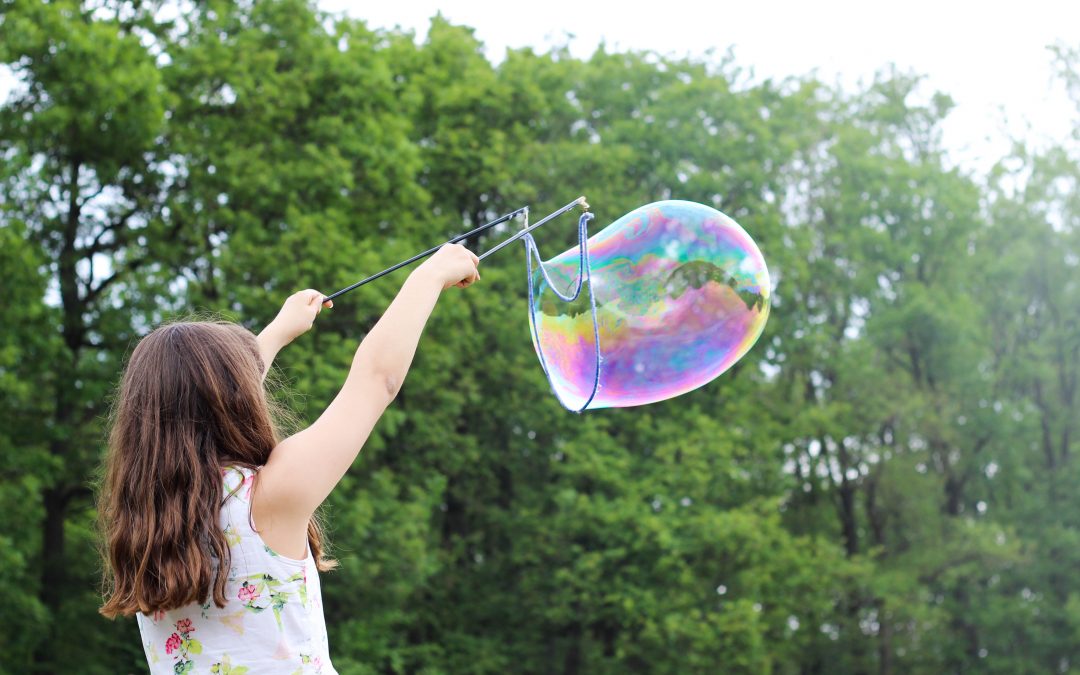Behaviour – who is it challenging?
By Laura Kennedy
I always thoroughly enjoy spending time with my Forest School family and have been blessed to once again join in supportive community, this time at the beautiful Crann Óg Eco Farm outside Gort, Co Galway. Twelve Forest School Leaders from all over Ireland gathered together to deepen our connection to our work in the woods and to explore Working with Challenging Behaviour in the Outdoors. Our facilitator, Jon Cree, chair of the UK Forest School Association, guided us expertly and carefully along the path of what was at times a challenging and thought provoking, but ultimately, fulfilling experience.
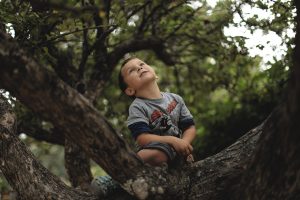 Jon opened the session by saying that actually the title of the course should really be exploring our own behaviours in the outdoors, at which some jokingly walked away and asked for their money back. But true to point, throughout the three days I found myself looking at my own expectations of and reactions towards behaviour and re-evaluating all that I thought I knew about behaviour and how best to work along side it.
Jon opened the session by saying that actually the title of the course should really be exploring our own behaviours in the outdoors, at which some jokingly walked away and asked for their money back. But true to point, throughout the three days I found myself looking at my own expectations of and reactions towards behaviour and re-evaluating all that I thought I knew about behaviour and how best to work along side it.
“What is the need that is not being met that is driving the challenging behaviour?”
This question really struck a chord with me and I hope that I will now always ask this when confronted with behaviour that challenges me. Recognising that all behaviour is a form of communication, especially behaviours that challenge us, this question, once asked without judgement or blame, will help me to look at the behaviour in a new light and to engage with the child displaying it in a much more empathetic manner.
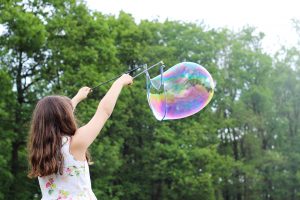
Empathy, simply put, is the ability to understand and share the feelings of others. In our role as leader, we must at all times meet the children with whom we work with empathy, and at no time is this more important than when coming face to face with a behaviour that we find challenging.
We need to acknowledge a child’s feelings rather than try to change them. Too often we want to offer a solution, where as, in fact we should be giving the child the space to process their emotions, allowing them the freedom to feel.
By our acknowledging their emotions they can then truly feel that they are being heard. And we need to hear them and allow ourselves to be heard in non-violent communication (a four-part process of clearly expressing how I am without blaming or criticising, and emphatically receiving how you are without hearing blame or criticism, stating observations, feelings, needs and requests, see https://www.cnvc.org for more information).
Forest School believes in a constructivist approach to behaviour, that relies on natural consequences and intrinsic motivators rather than rewards and sanctions. How often have I been taught that praising a child is the best way to promote good behaviour? However, in doing so I am taking away their ownership of their own behaviour. Allowing children to make meaning of something for themselves and to be motivated for their own good rather than for reward will lead to long term change rather than behaviour that is conditioned, as in Pavlov’s dog.
This may seem to some to be a risky and slow process, but once we bear in mind again our question of “what is the need that is not being met that is driving the behaviour?” We realise that the behaviour is not there to challenge us but is how the child is meeting that need in another way.
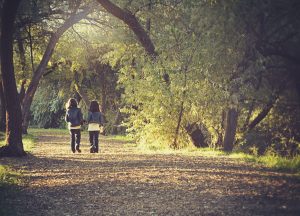
And underpinning all of this is the respecting of children’s rights. All children’s right to learn, all children’s right to safety and and all children’s right to respect. These rights come with corresponding responsibilities, so while some may talk purely of how the adult must respect the child, let us not forget that the children have a responsibility to also respect each other and not take away other children’s right to safety or learning through their behaviour.
Over the three days we talked, we shared, we sat in silence, we sang, we role played and we challenged. We supported each other, allowing vulnerabilities to surface without judgement. In spite of sharing dorms and meals (oh such delicious meals, thank you thank you Kerry and Carol) and long hours of work that truly challenged us, there was always an opportunity for space, an acceptance of each others’ needs, yet an implicit understanding that we were all in this together.
I return to the woods feeling better prepared to work along side behaviour that challenges me, with a new style emerging that leaves me better equipped to meet each and every child, no matter the behaviour, with empathy and understanding in a calm and honest way, true to myself, while respecting their needs and the needs of all those children with whom they share the woods.
Thank you Jon for guiding me on this journey, and thank you fellow Forest Schoolers for accompanying me, supporting each other and holding that nurturing space that allowed us to grow and develop along the way.
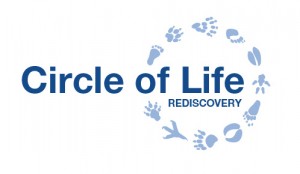 In November 2018, Jon Cree is joining Circle of Life Rediscovery for a 3 day course, Working with Young People with Challenging Behaviour, in the Outdoors. The course takes place on 19th – 21st November with the option of an Accreditation.
In November 2018, Jon Cree is joining Circle of Life Rediscovery for a 3 day course, Working with Young People with Challenging Behaviour, in the Outdoors. The course takes place on 19th – 21st November with the option of an Accreditation.
This course will delve into:
- What challenges us as leaders in the outdoors
- Theory on challenging behaviour
- Up-to-date neural research; triggers and causes for challenging behaviour
- Ways of dealing with ‘real life’ scenarios in the outdoors
- De-escalation
- How to transfer outdoor strategies into an indoor and other settings – including looking at the validity of sanctions and rewards.
- Reviewing your own policies
See the website for full details about this course. Book online here.
Blog by By Laura Kennedy, Wondering Wild

